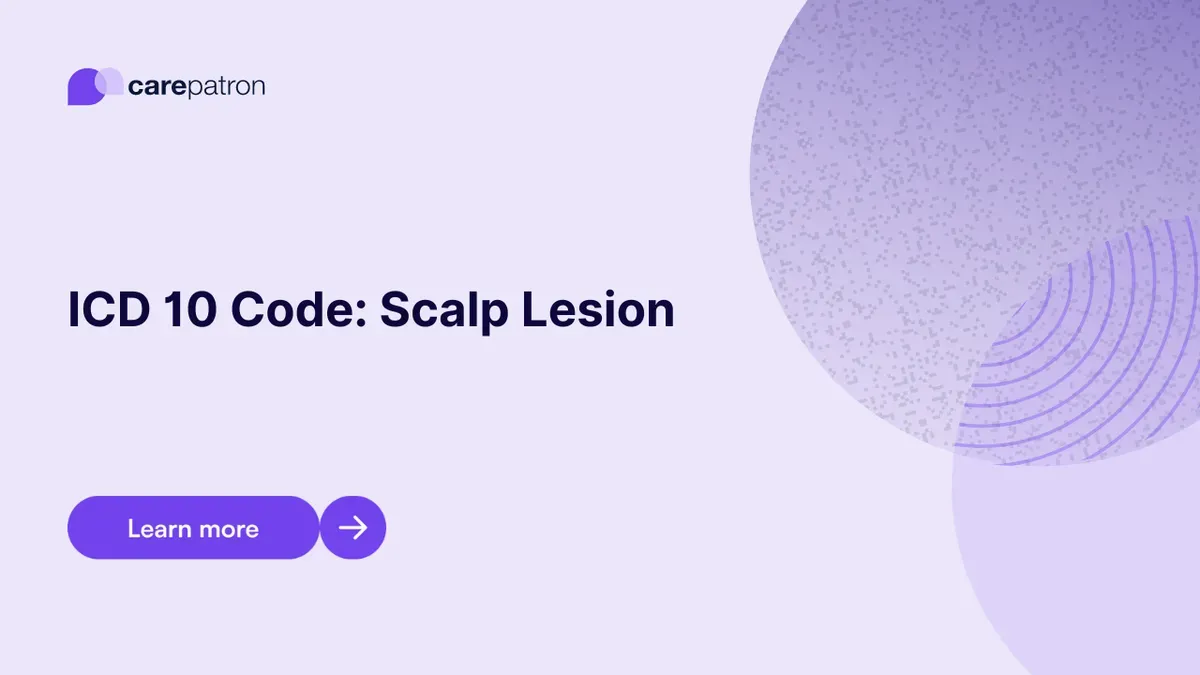
Scalp Lesion ICD-10-CM Codes
Explore the specific ICD-10 codes for diagnosing and documenting scalp lesions. Accurate coding is crucial for proper tracking and treatment of scalp lesions.
Use Code
Commonly asked questions
Scalp Lesion ICD codes should be used when diagnosing a patient with a scalp lesion to accurately document the condition for clinical records and insurance billing purposes.
Treatments vary based on the type of scalp lesion. They can range from topical creams for mild conditions to surgical procedures for removing cysts or tumors.
A diagnosis code for Scalp Lesion provides a standardized definition of the patient's condition. It helps healthcare professionals communicate the exact nature of the patient's scalp lesion, facilitating appropriate treatment and billing.
EHR and practice management software
Get started for free
*No credit card required
Free
$0/usd
Unlimited clients
Telehealth
1GB of storage
Client portal text
Automated billing and online payments
